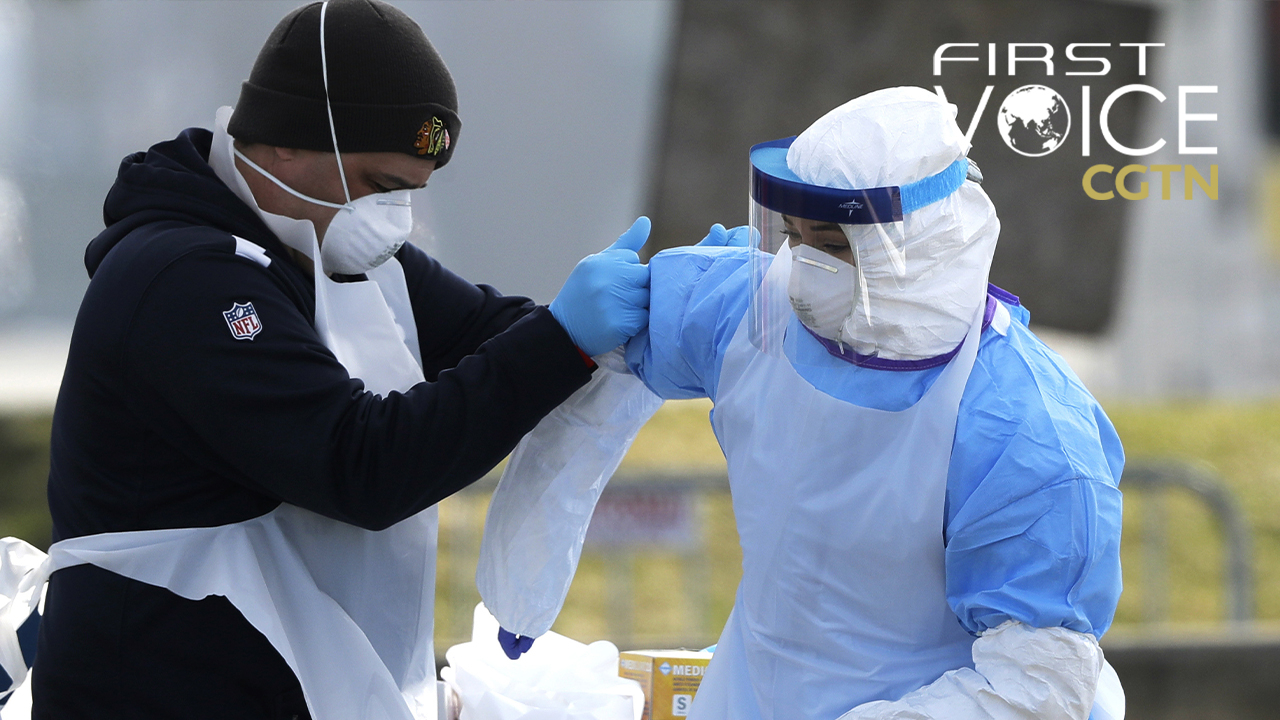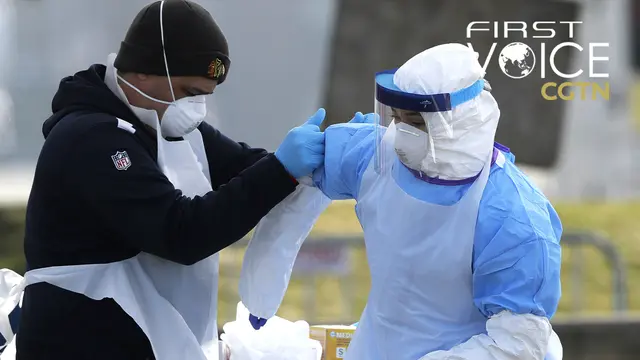
Editor's note : CGTN's First Voice provides instant commentary on breaking stories. The daily column clarifies emerging issues and better defines the news agenda, offering a Chinese perspective on the latest global events.
It is no secret that the healthcare system in the United States is a field of complicated policy language and fierce political division. A recent teen death in Lancaster, California has now intensified the spotlight on its flaws.
On March 18, a 17-year-old in Lancaster, California was rushed to an urgent care center by his parents two days after falling ill and having trouble with his respiratory system. Due to his lack of health insurance, the teen was re-directed by the facility to Antelope Valley Hospital to receive treatment. En route, he suffered a cardiac arrest. AV Hospital was able to revive and sustain him for approximately six hours before he succumbed to the illness.
Six days later, the Los Angeles County Department of Public Health determined that the cause of death was COVID-19. However, later on the same day, department officials issued a statement saying that the Centers for Disease Control and Prevention (CDC) would reevaluate the situation because "there may be an alternate explanation for this fatality."
Though the incident is still being investigated, controversy about the case have raged on the internet. Debates about the role of health insurance, the preparedness of the urgent care facility in the face of a pandemic, the proper course of action when the illness is beyond the facility's capability to handle and the political divide are filling Twitter as well as the comment sections under news articles.
R. Rex Paris
, mayor of Lancaster, told CNN that "when a kid comes in respiratory distress, stabilize him and call ambulance, don't ask for insurance." The problem is that sometimes the proper course of action could be derailed by the nearly indecipherable rules and politics.

A sign showing limited stock of protective face mask in Washington, U.S., March 5, 2020. /Reuters
Kee Park, a faculty member at Harvard Medical School and a consultant for the World Health Organization, said during a recent
interview
that the U.S. healthcare system is "so fragmented and with multiple payers." Besides public health insurance, private insurance companies have "hundreds, if not thousands of different plans" that are often costly and difficult to untangle. According to the U.S. Census
, 27.5 million Americans were uninsured in 2018. The Commonwealth Fund found that 9.5 million were underinsured. The Organization for Economic Cooperation and Development posted a report stating that healthcare costs per capita in the U.S. were more than 10,000 U.S. dollars in 2019, three times the cost in neighboring Canada.
Accounting for more than one-sixth of the U.S. economy, healthcare is notoriously known for being "the third rail" of American politics. Any health issue could be so controversial and sprawling that any politician who touches it risks paying a heavy political price. It is widely acknowledged that passing the Affordable Care Act, AKA Obamacare, cost the Democrats their majority in the House of Representatives in 2010 and brought the Tea Party and a sweeping conservative movement into national politics. After Donald Trump was elected president, his efforts to repeal Obamacare were met with strong Democratic resistance every step of the way.
Just look at the passage of the "Families First Coronavirus Response Act," the second part of the coronavirus relief package. Even in the midst of an outbreak, negotiations between Democrats and Republicans over issues like paid sick leave and free testing still came close to falling apart. According to the Washington Post, it took 13 phone calls between Speaker of the House Nancy Pelosi and Treasury Secretary Steven Mnuchin on March 13 alone to be able to reach the deal – rare if not unheard of in negotiations at this level in times of such urgency.
The Lancaster teen's passing is a tragedy. And it is a tragedy that a single case is casting doubts over the whole healthcare and governance system. Bureaucratic infighting and influence of different interests come with the territory in American politics, trying to purify the system is daydreaming. However, when the obligation is supplanted by them, the government fails at carrying out its primary responsibility – protecting the lives of all its people. Perhaps it is in the best interest of all to remedy the situation before a tragedy like this one turns from exception into norm.
Script writer: Huang Jiyuan
(If you want to contribute and have specific expertise, please contact us at [email protected].)
 简体中文
简体中文




